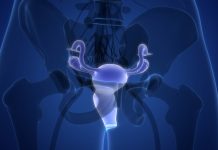Consuming higher-quality ultra-processed foods (UPFs) might be linked to a higher risk of cancers in the upper aerodigestive tract, encompassing the mouth, throat, and oesophagus
A recent study led by researchers from the University of Bristol and the International Agency for Research on Cancer (IARC).
UPR link to cancer
The international study examined diet and lifestyle data from 450,111 adults over 14 years. The findings suggest that the connection between ultra-processed food (UPF) consumption and obesity might not be the contributing factor.
Numerous studies have established a correlation between the intake of UPFs and cancer, with a recent investigation examining the link between UPFs and 34 distinct types of cancers in Europe’s largest cohort study, the European Prospective Investigation into Cancer and Nutrition (EPIC) cohort.
As more evidence emerges regarding the links between consuming UPF’s and negative health outcomes, Bristol Medical School and IARC researchers aimed to delve deeper into this connection.
Beyond body fat
Given the unhealthy nutritional profiles of many UPFs, the team investigated whether the association between UPF consumption and head and neck cancer, as well as oesophagal adenocarcinoma, in the EPIC cohort, could be due to an increase in body fat.
Results indicated that a 10% increase in UPF consumption was linked to a 23% higher risk of head and neck cancer and a 24% higher risk of esophageal adenocarcinoma in the EPIC cohort. However, the impact of increased body fat explained only a small portion of the statistical association between UPF consumption and the risk of these upper-aerodigestive tract cancers.
Fernanda Morales-Berstein, a Wellcome Trust PhD student at the University of Bristol and the study’s lead author, explained: “UPFs have been associated with excess weight and increased body fat in several observational studies. This makes sense, as they are generally tasty, convenient and cheap, favouring the consumption of large portions and excessive calories.”
Analysis of findings
The authors propose that factors other than increased body fat might account for the observed association. Additives like emulsifiers and artificial sweeteners, previously linked to disease risk and contaminants from food packaging and manufacturing, could partially explain the connection between ultra-processed food (UPF) consumption and upper-aerodigestive tract cancer.
However, the authors, led by Fernanda Morales-Berstein, emphasise caution and suggest that certain biases could affect the associations found in the study. They acknowledge that the link between higher UPF consumption and an increased risk of accidental deaths, an unlikely causal relationship, may be influenced by such biases.
Inge Huybrechts, Team head of the Lifestyle exposures and interventions team at IARC, added: “Cohorts with long-term dietary follow-up intake assessments, also considering contemporary consumption habits, are needed to replicate these study’s findings, as the EPIC dietary data were collected in the 1990s when the consumption of UPFs was still relatively low. ”
Additional research is required to uncover other potential mechanisms, such as food additives and contaminants, that could elucidate the observed connections.











